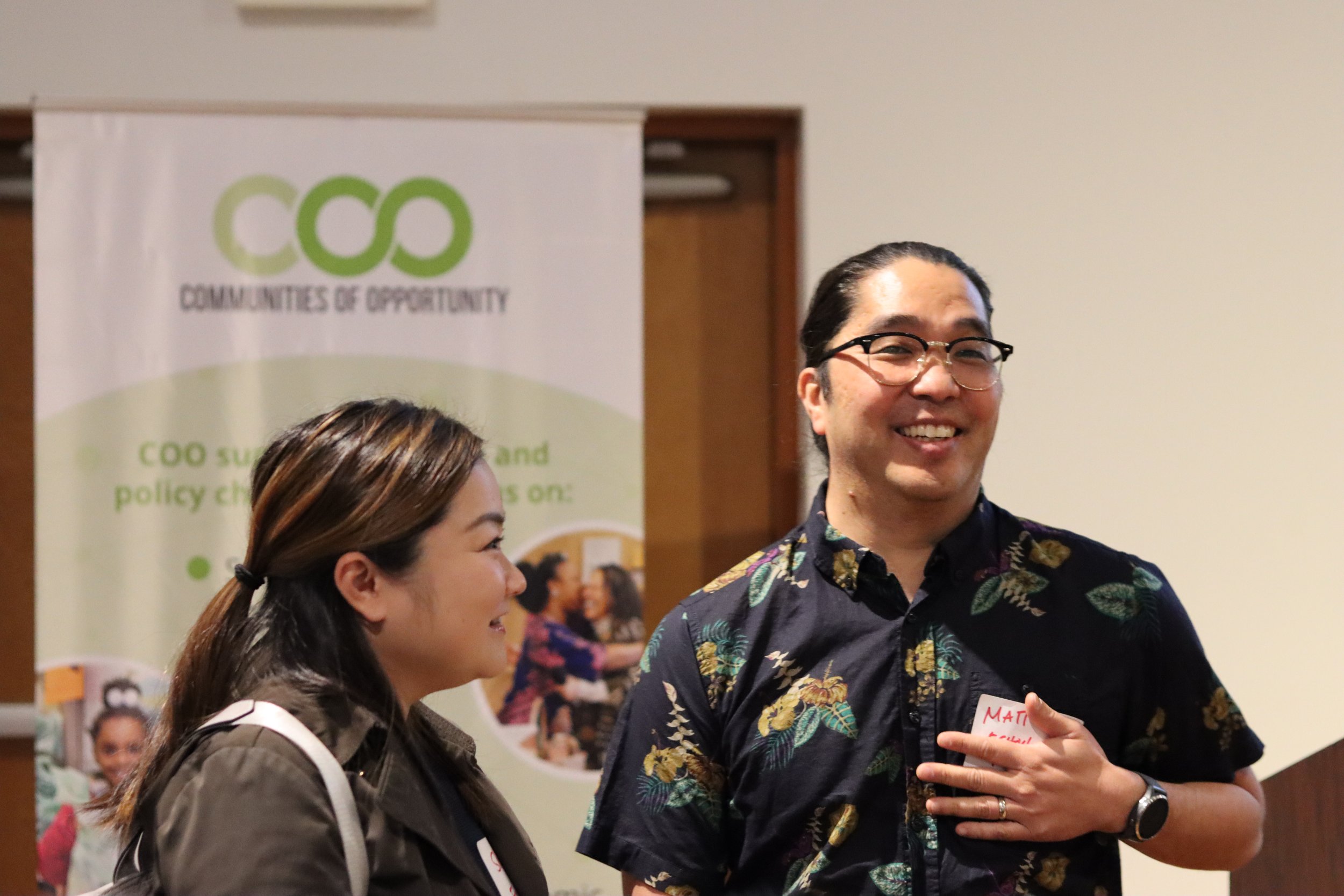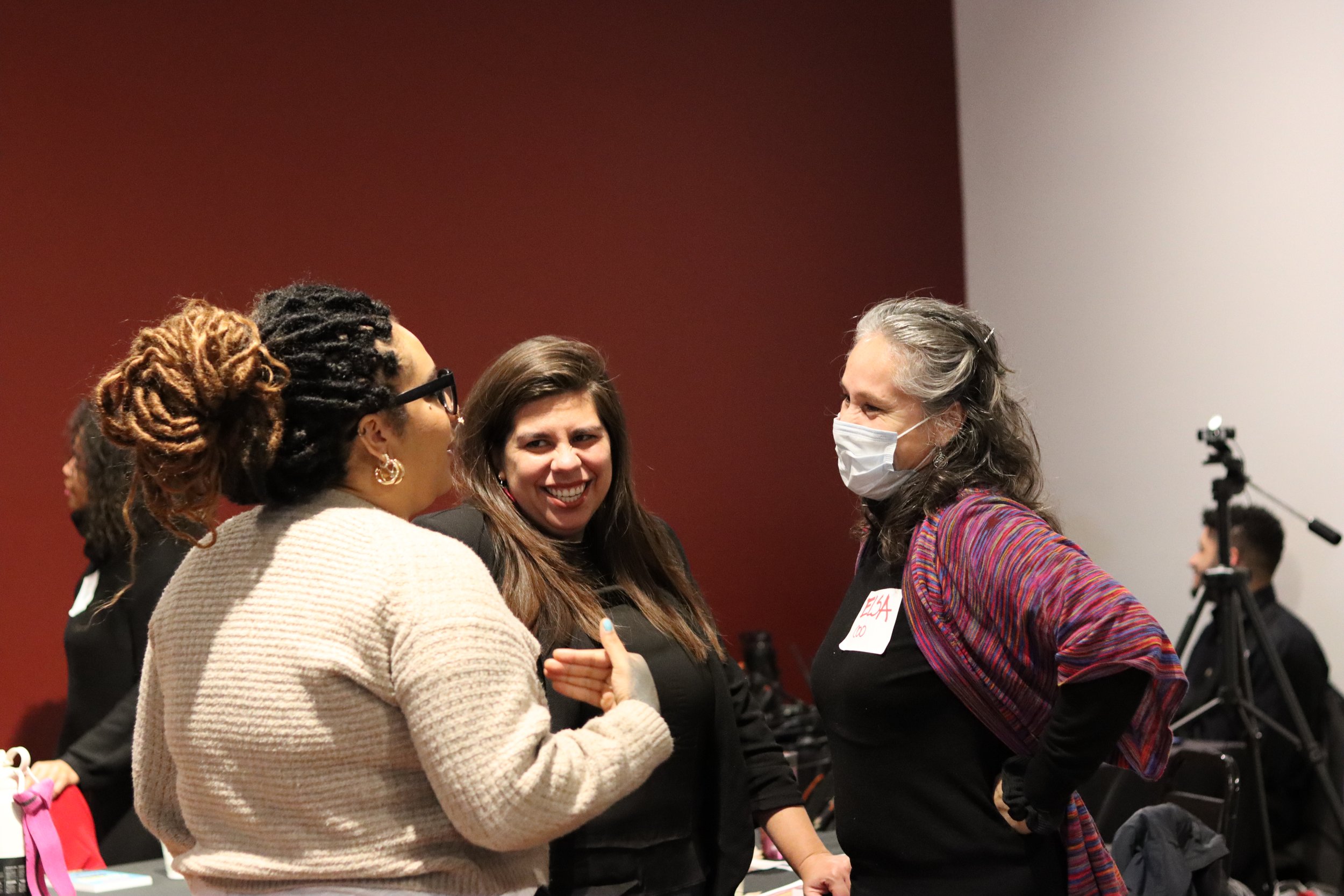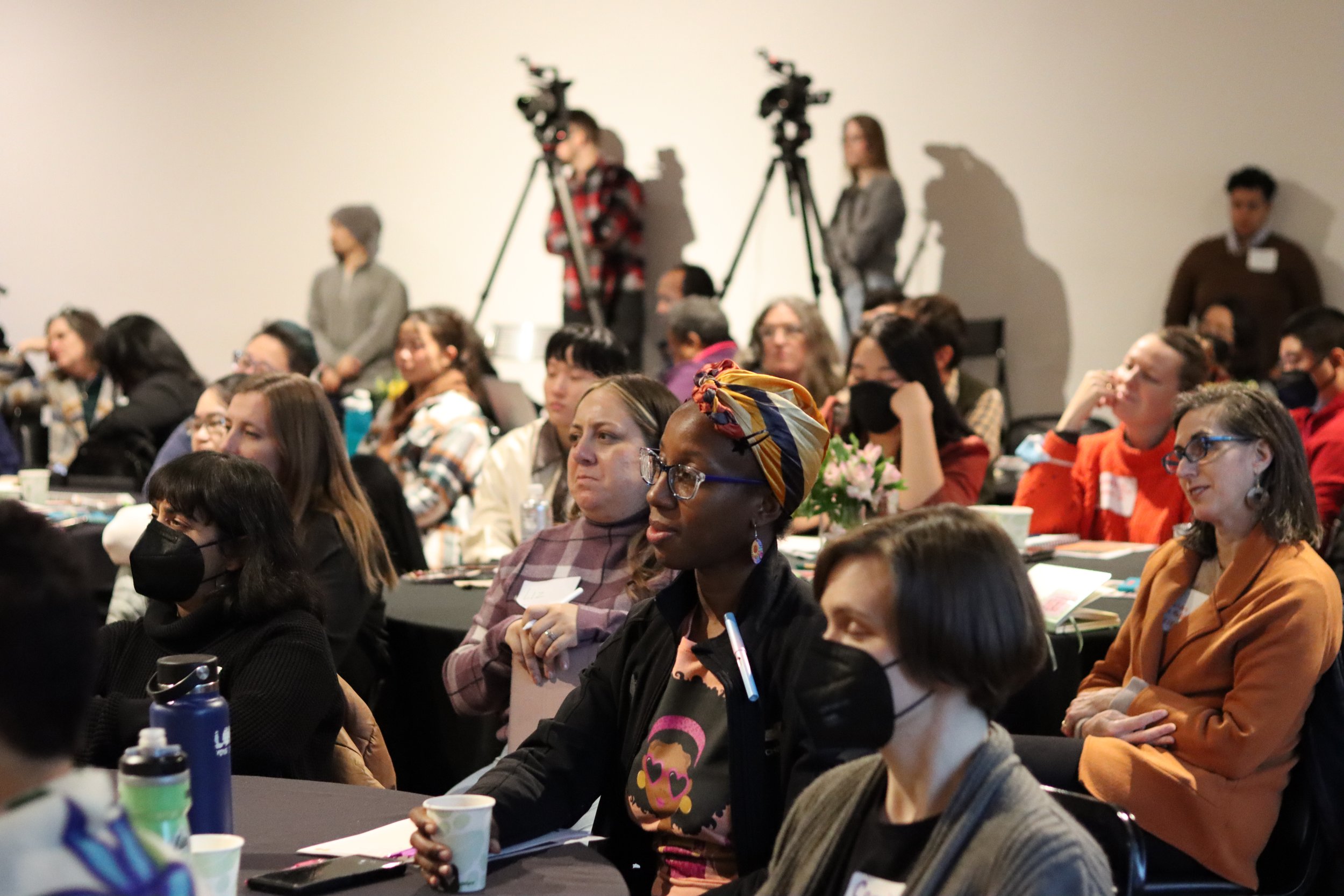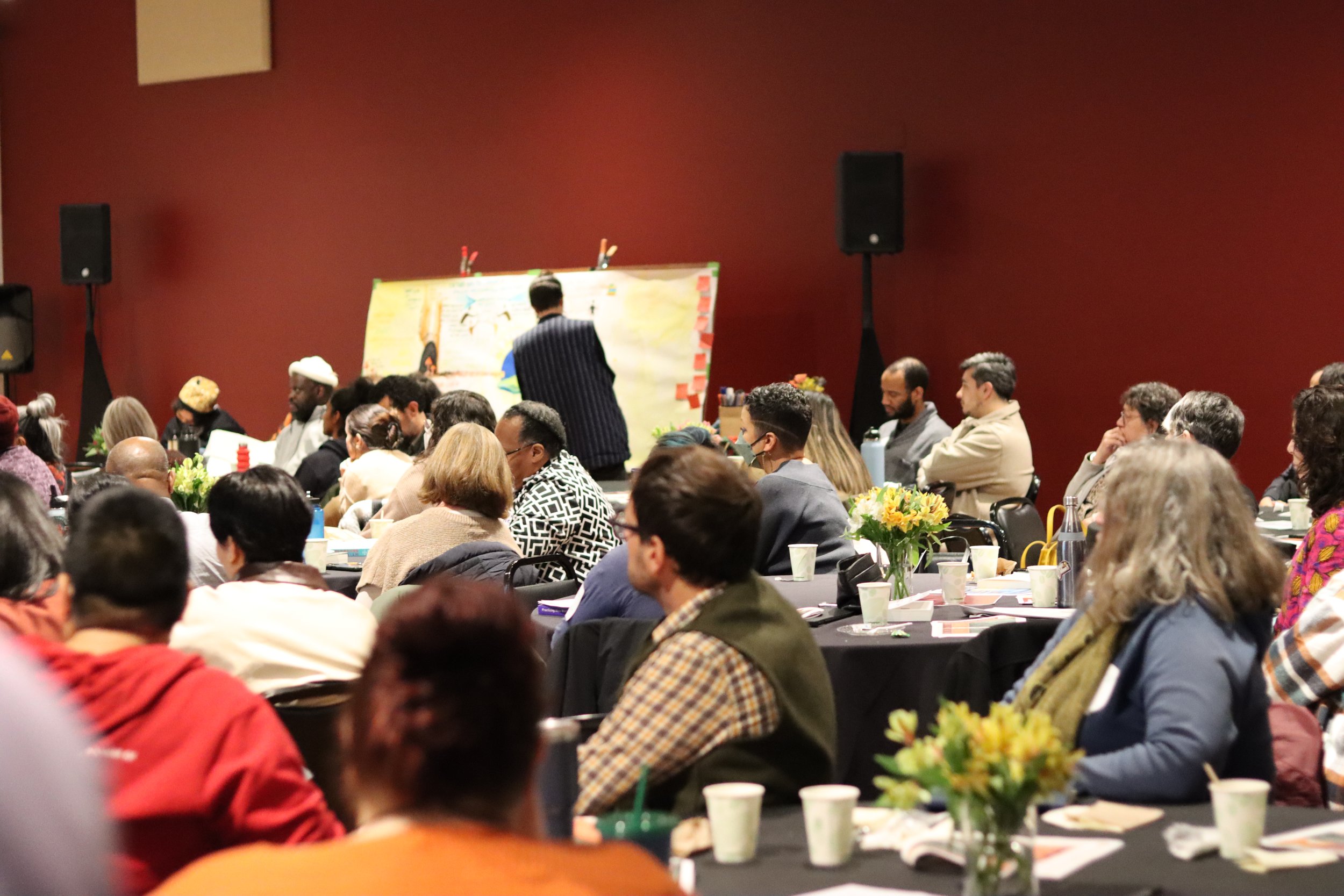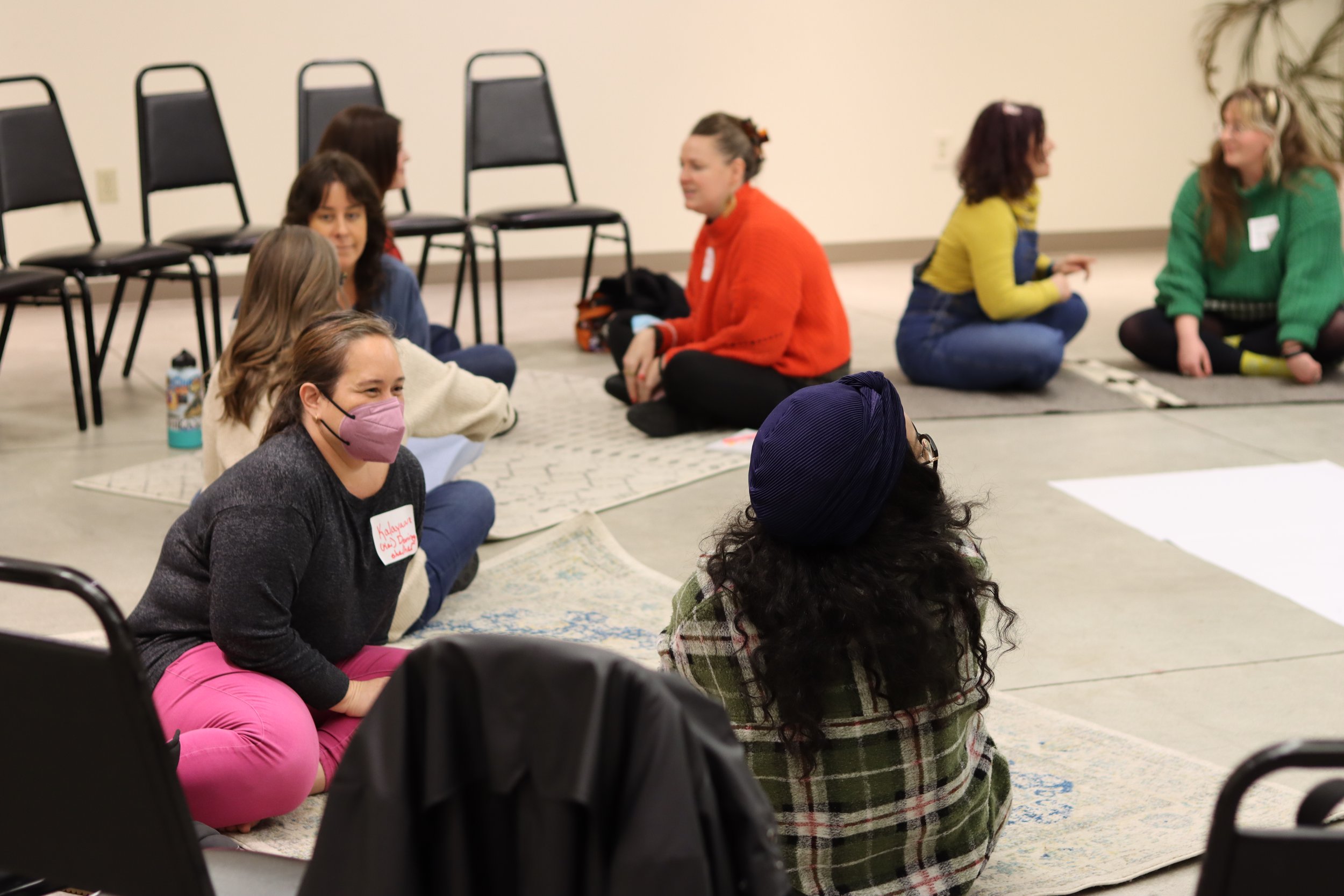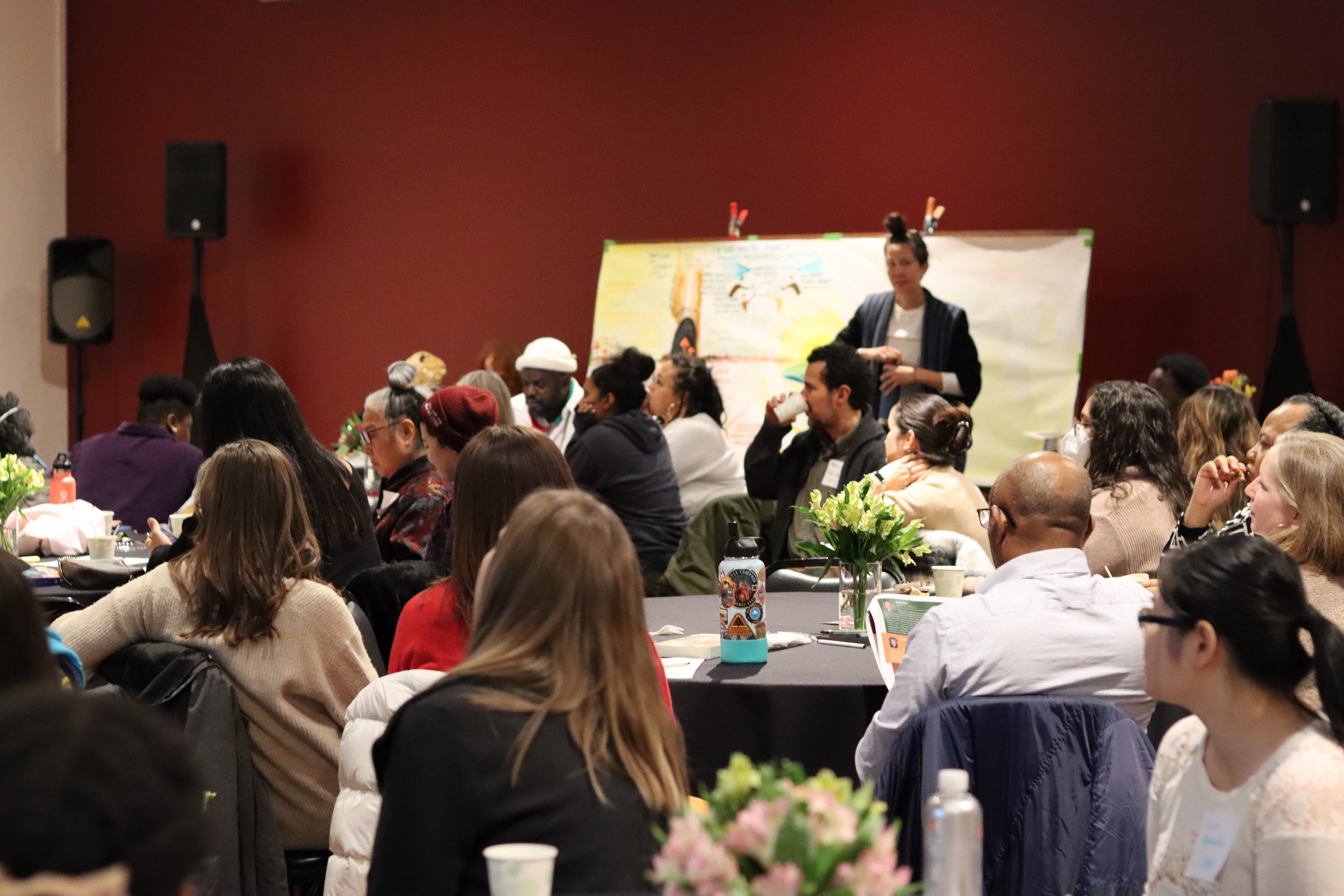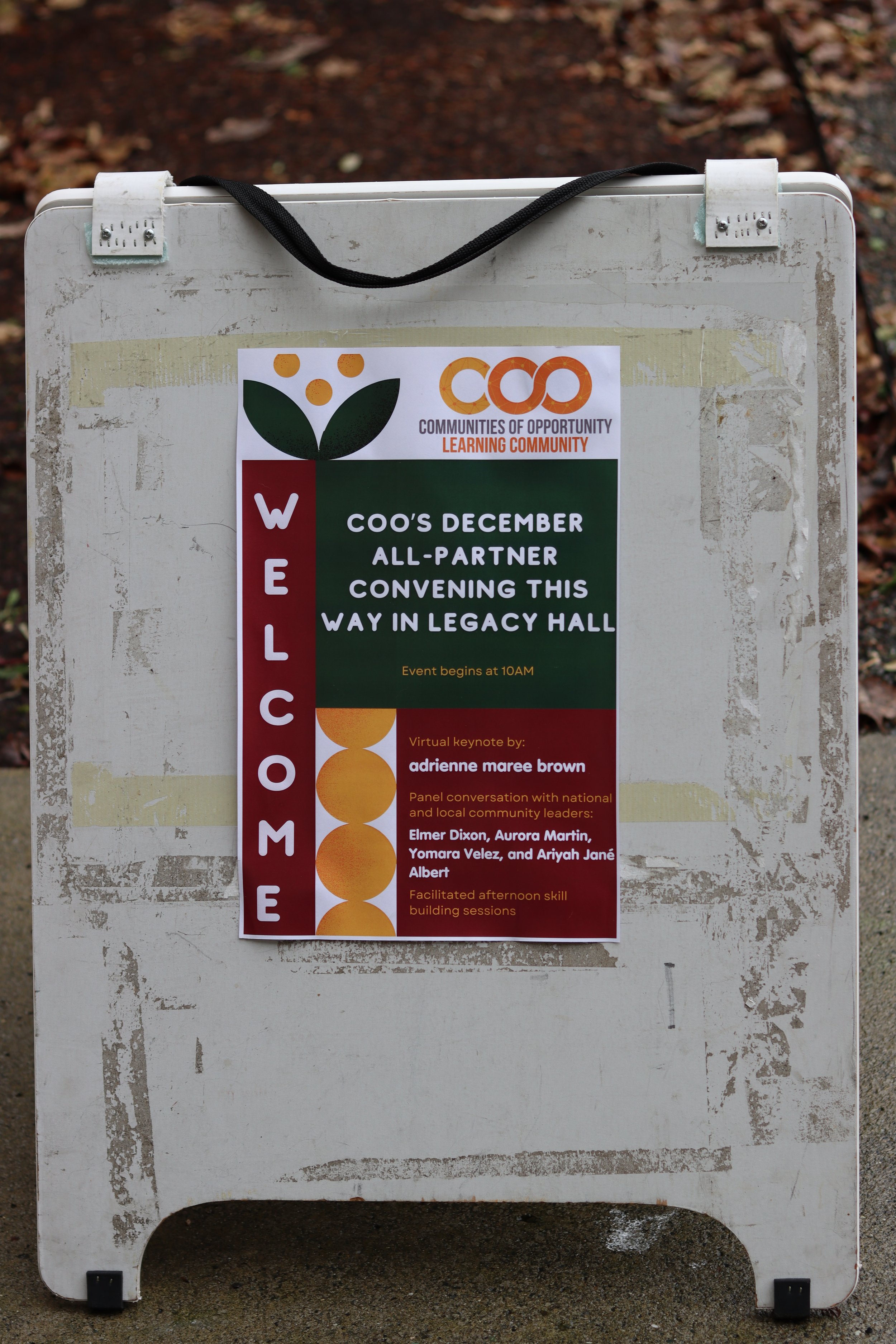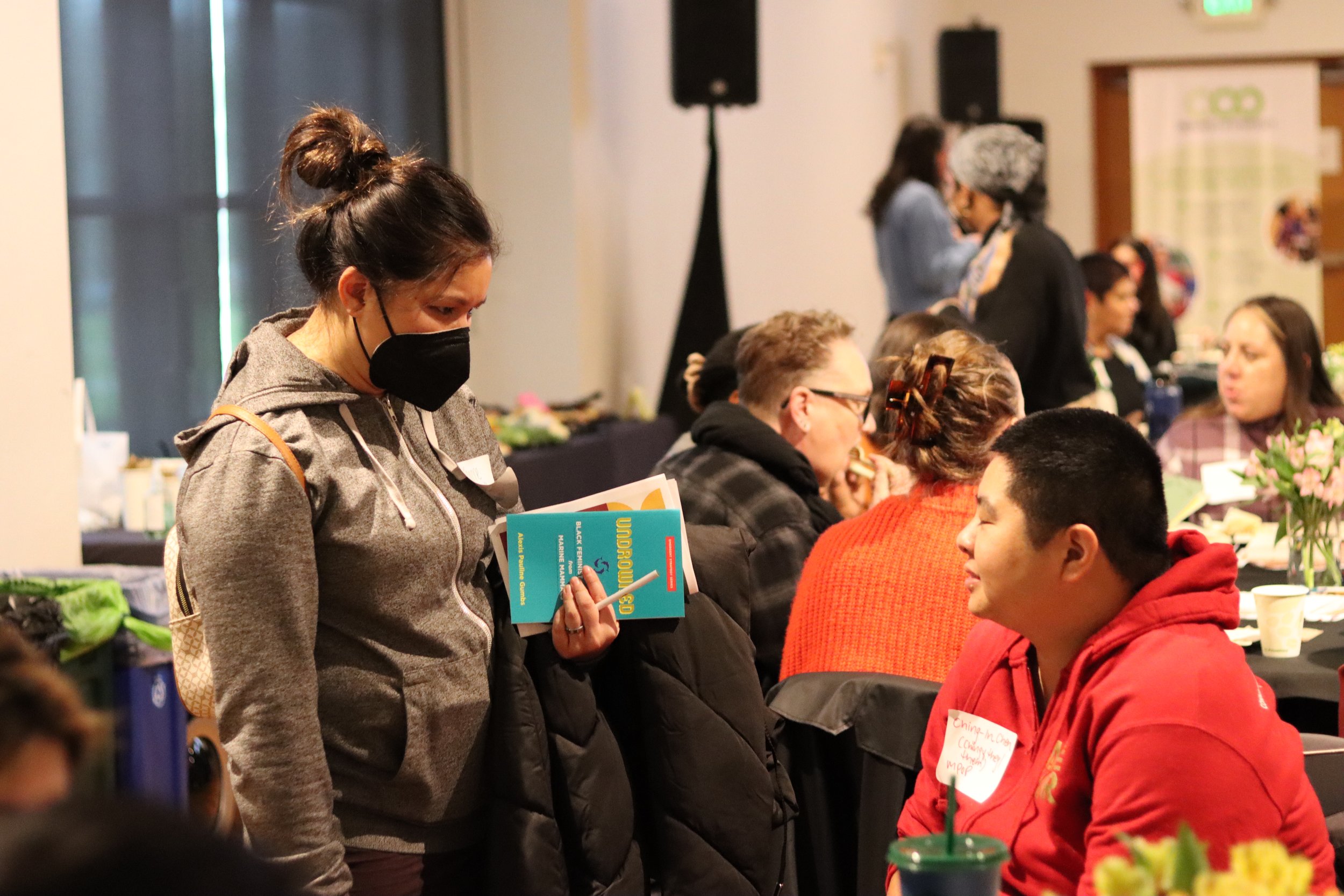“There Was No Stopping Us”: Reflecting on Winter 2023 All-Partner Convening
This video features highlights from the Winter Convening.
As a student at Seattle’s Garfield High School in the 1960s, Elmer Dixon co-founded Seattle’s Black Panther Party and coordinated their free breakfast program for children. Yomara Velez began organizing as a young single mother in the Bronx in the mid-90s, fighting for women on welfare to get access to higher education. In Alabama, as a “bright-eyed 21-year-old,” Ariyah Jané Albert got pushed aside after saying out loud, “I’m trans”; so, she built a community among her colleagues. When Aurora Martin was a young Legal Aid attorney, she saw her organization make a difficult, bold decision to turn down millions in funding -- because the funding requirements would have led to greater injustice.
These organizers told their origin stories during a panel discussion at COO’s Winter All-Partner Convening, Thursday, December 14 at Northwest African American Museum. In a room full of about 100 change-makers, they talked about who inspired them, the connections among movements locally and globally, the lessons they learned, and much more.
This panel, “Strengthening Movements of Solidarity, Accountability, and Community,” was one highlight of a day devoted to connection, learning, sharing, and restoration.
Building healthy and resilient partnerships
The conversations and workshops were designed to support groups who are working for greater equity, justice, and well-being, and elevate the knowledge and wisdom that exists across COO and King County. The theme for the day: Building healthy and resilient partnerships and organizations for strong movements and communities.
The day’s conversations followed up on themes COO heard at the Spring Convening with Dr. Robin Wall Kimmerer in May. At that spring gathering, we focused on bridging and building healthy relationships -– with ourselves, with others, within our communities, and with all living things in our environments.
The Winter All-Partner Convening intended to carry that momentum forward. Attendees came from more than 70 community organizations, working across and at the intersections of COO’s four result areas of community connections, economic opportunity, health, and safe and affordable housing.
Joining them were staff and leadership from the COO Governance Group, Best Starts for Kids, Public Health – Seattle & King County, and Seattle Foundation. We all came together to connect, learn, and be inspired.
A glance at a day of building power
The day started with a moving keynote about healing from scholar, activist, and author adrienne maree brown, who spoke to us remotely. “There’s something about softness and love as a force that can create change in the world,” she told us. “We are one global family.”
Following the panel discussion with Ariyah, Aurora, Elmer, and Yomara (read more about the panel below), attendees moved into breakout sessions:
Collaborations & Partnerships peer learning space, facilitated by Headwater People
Organizing Strategies conversation with Yomara Velez, Midwest Academy
Facilitated Art Intention Setting & Sound Meditation with Nicole Keenan, Transformative Shifts
We also hosted book sales and giveaways in partnership with Loving Room: diaspora books + salon [find a curated book list for the event here].
Weaving together the threads of the day, artist Mari Shibuya captured the main room’s conversations, capturing the day in the below artistic reflection. Mari and Matthew Echohawk-Hayashi (Headwater People) concluded the day together with a closing meditation and invitation to participants to deepen the connections made in the room that day.
Graphic recording made by Mari Shibuya at the 2023 Winter All-Partner convening
Read the Welcome Packet for background on how we designed the day’s events, the speaker bios, and more.
Panel shares stories of history, inspiration, and community power
This video captures the afternoon panel discussion.
“I really believe that our stories are a gift that we give to one another,” moderator Sarah Tran told the group. She guided panelists Ariyah Jané Albert, Elmer Dixon, Aurora Martin, and Yomara Velez through an hour of storytelling and conversation.
Here are a few takeaways:
Aurora said part of her work at Front and Centered is about “the search for making it so that love and justice truly do mirror each other.” She talked about systemic change and courage, and how they relate to love and justice. She reflected on a defining moment early in her career, when restrictions on federal funding in 1996 limited what kind of clients legal aid nonprofits could represent. It meant, for example, they could no longer represent people who were incarcerated and people who were undocumented. Nor could they file class-action lawsuits.
Aurora’s legal aid organization decided to turn down the funding even though it had been their backbone. “Washington state was the first one to say we're not going to take that money,” she said. “We're going to reimagine justice.”
Elmer talked about attempts to divide and conquer that can come from an unexpected direction. “The biggest threat comes from a lot of different places, but I think largely – for organizers and activists – it's internal,” Elmer noted. While others might think the danger comes from extremists, “What about that cat sitting right next to you, sitting across on your board, who says ‘I don't like what you're doing!’ Don't be fooled, the biggest enemy is within,” he said to applause.
“Our stories are a gift we give one another.”
Leaders are created through the help and mentoring they got along the way as young organizers. “I feel like there's a huge responsibility now for me to go ahead and help and support other organizers that are up and coming,” Yomara said. When she started, she said, she had never imagined organizing is a profession.
Now she is co-executive director of Midwest Academy, helping others learn how to launch successful campaigns and build strong organizations. “I just didn't even see that for myself,” she said. “And how beautiful it is when someone sees something in you that you might not even see yourself.”
Ariyah, with the Lavender Rights Project, referred to the “Organizers Triangle”: vision, self-awareness, and roles and skills. She noted that “ultimately we all come with so many skills because of things we've been through and because of things we had to gather…The thing that makes organizing special is that I don't represent every trans woman in this world; I don't represent every black person in this world; I don't represent every Christian in this world. Those are three identifiers that I'm very loud about and yet I can't speak for everybody,” she said.
“That's why it's important that we keep getting out in the street and we keep using our voice and we keep inviting other community members to the table. Everybody is not equipped maybe to do the job; but everybody has hands that can do the work.”Clearly state your organizing principles, and follow through on them. “Fred [Hampton] used to say you can kill a revolutionary, but you can't kill the revolution; you can jail a revolutionary, but you can't jail the revolution,” Elmer said. “That's because if you stick to your principles, that's going to carry you through the fight.”
The panel agreed that seeing commitment from young people, even children, gives them hope. In fact, Yomara, who now lives in Georgia, is recruiting young organizers close to home. She’s proud of “the way that we showed up this last election and how we all threw down. When I tell you my little one was door knocking, like my 9-year-old was door knocking, we were all in the streets and there was no stopping us,” she said.
Why we host these Convenings
The COO Learning Community strategy provides opportunities to engage in shared learning and to develop and practice innovative solutions. Convenings such as this one are intended to build and strengthen the relationships, skills, knowledge, and strategies that sustain the critical connections for community power building and systems change.
We believe that the spaces that connect people together across sectors, places, organizations, and projects are critical infrastructure for community power building and systems change work. We hope that this day was sustaining and restorative and that partners came away inspired, with strengthened knowledge and ideas, as well as new connections and opportunities.
In 2024, the Learning Community will continue to host more convenings and opportunities for cross-connection, healing, and strategic knowledge and skill-building. These will be open to groups across King County working in aligned ways and looking to strengthen the internal capacities of their organizations and partnerships. Look for upcoming announcements about learning opportunities focused on organizing, narrative power building, organizational financial management, circular economy and more.
Want to get involved? Reach out to us at info@coopartnerships.org about ways to participate in co-creation of these events.


